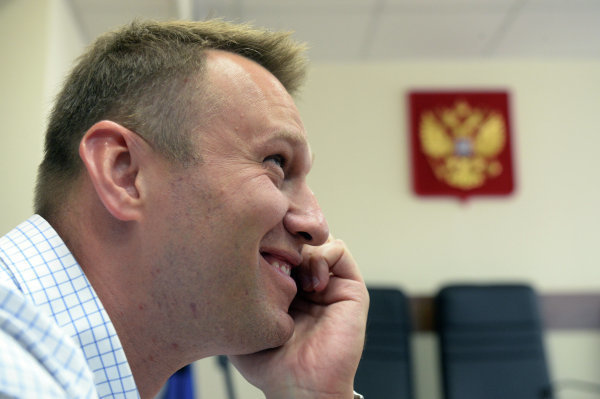MOSCOW, July 5 (RAPSI) - Russian opposition politician Alexey Navalny has appealed the extension of his probation period in the Kirovles embezzlement case, the spokesperson of Moscow’s Simonovsky District Court Viktor Vasilyev has told RAPSI.
The hearing date has not been set yet.
Earlier, the court extended the probation period of Navalny for 1 year, until July 2019.
In March, the Supreme Court of Russia upheld a 5-year suspended sentence given to Alexey Navalny in the Kirovles embezzlement case.
According to investigators, while serving on a voluntary basis as an adviser to the Kirov Region governor Navalny organized the theft of over 10,000 cubic meters of timber from Kirovles company between May and September 2009.
Investigators claimed that Ofitserov, then Director of Vyatka Timber Company, and Kirovles CEO Opalyov were involved in the scheme. Proceedings against Opalyov were treated as a separated criminal case after he admitted his guilt.
Navalny was given a 5-year suspended sentence for embezzlement at the Kirovles timber company in July 2013. Later, Moscow's Lyublinsky District Court increased a probation period for him to 5.5 years. Ofitserov received a 4-year suspended sentence.
In February 2016, the European Court of Human Rights (ECHR) held that the applicants’ right to a fair trial had been violated and ordered Russian authorities to compensate Navalny with €48,000 of legal costs and Ofitserov with €22,000. Additionally, Russia was obliged by court to pay 8,000 euro each in damages.
In November 2016, the Supreme Court overturned sentences against Navalny and Ofitserov and ordered retrial. The court delivered the ruling taking into consideration the judgment of the European Court of Human Rights (ECHR).
In February 2017, Navalny was convicted of organizing embezzlement of 16 million rubles (about $280,000) at the Kirovles timber company for the second time and received a 5-year suspended sentence, while another defendant in the case, Petr Ofitserov, received a 4-year suspended sentence. Additionally, they were fined 500,000 rubles (about $8,500) each.



